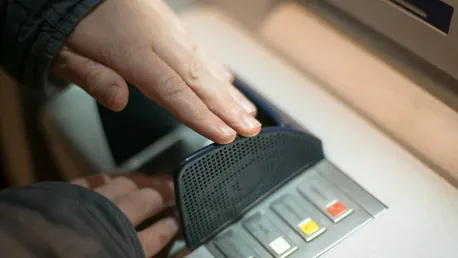In an unprecedented move to combat the ever-increasing threat of fraud and scam activities in Australia, the nation’s major financial institutions have joined forces to launch the ‘BioCatch Trust Australia’ network, an innovative interbank intelligence-sharing system. This collaborative network involves leading banks such as ANZ, CBA, NAB, Westpac, and Suncorp, all of which are committed to blocking payments to accounts associated with fraudulent or mule activities.
Conceived by BioCatch, an Israeli company renowned for its cutting-edge fraud detection technologies, the new system enables participating institutions to share crucial information in real-time. Using advanced behavioral biometrics and device data, banks can identify suspicious accounts before transactions are processed, allowing them to block payments if an account is flagged as potentially fraudulent.
BioCatch’s technology conducts real-time assessments of high-risk domestic bank accounts, identifying those that might serve as mule accounts for criminal activities like money laundering or fraudulent transactions. The gathered intelligence is then shared with the sending bank, which can review and halt transactions before any funds are transferred. This approach significantly enhances the banks’ ability to prevent fraud from occurring.
The network’s strength lies in combining behavioral intelligence with various data points, including digital session, payment, account, device, and non-monetary event data. This comprehensive method aims to tackle scams that originate outside digital banking sessions, such as those initiated through emails, text messages, or social media posts. To maintain customer privacy, BioCatch uses proven pseudonymization technology, ensuring sensitive information is protected.
A report from LexisNexis underscores the importance of this initiative, revealing that only 27 percent of financial service institutions, retail, and e-commerce providers in the APAC region currently engage in data exchange for fraud prevention. This highlights the critical need for cooperative data sharing to enhance fraud detection capabilities. Real-world examples demonstrate substantial improvements in fraud detection for those using data sharing – one global bank saw a 17-fold increase in its detection capability, and a card issuer experienced a 23-fold improvement.
Among the early adopters of BioCatch’s technology is NAB, which has integrated it into their banking services and even holds an equity stake through its NAB Ventures arm. Chris Sheehan, NAB’s general manager of group investigations, commends this network as a significant step toward embracing innovative partnerships to combat crime effectively.
James Roberts, CBA’s head of group fraud, also praises the network for its real-time pre-payment intelligence sharing, deeming it a vital tool for enhancing anti-scam measures. BioCatch continues to invite additional industry participants to join the network, emphasizing that its effectiveness increases with more intelligence contributions.
Founded in 2011 in Tel Aviv, BioCatch specializes in behavioral biometrics, utilizing technology to monitor human-device interactions and detect digital fraud, money laundering, and impersonation activities. The company’s anti-fraud solutions are employed by 34 of the world’s largest 100 banks and 237 financial institutions globally.
In conclusion, the initiative taken by Australia’s leading banks and Suncorp to form an interbank intelligence-sharing network, powered by BioCatch’s advanced technology, represents a pioneering step in combating fraudulent activities. This robust network aims to enhance real-time detection and prevention of fraudulent transactions, thereby making it increasingly difficult for criminals to exploit the financial system.









